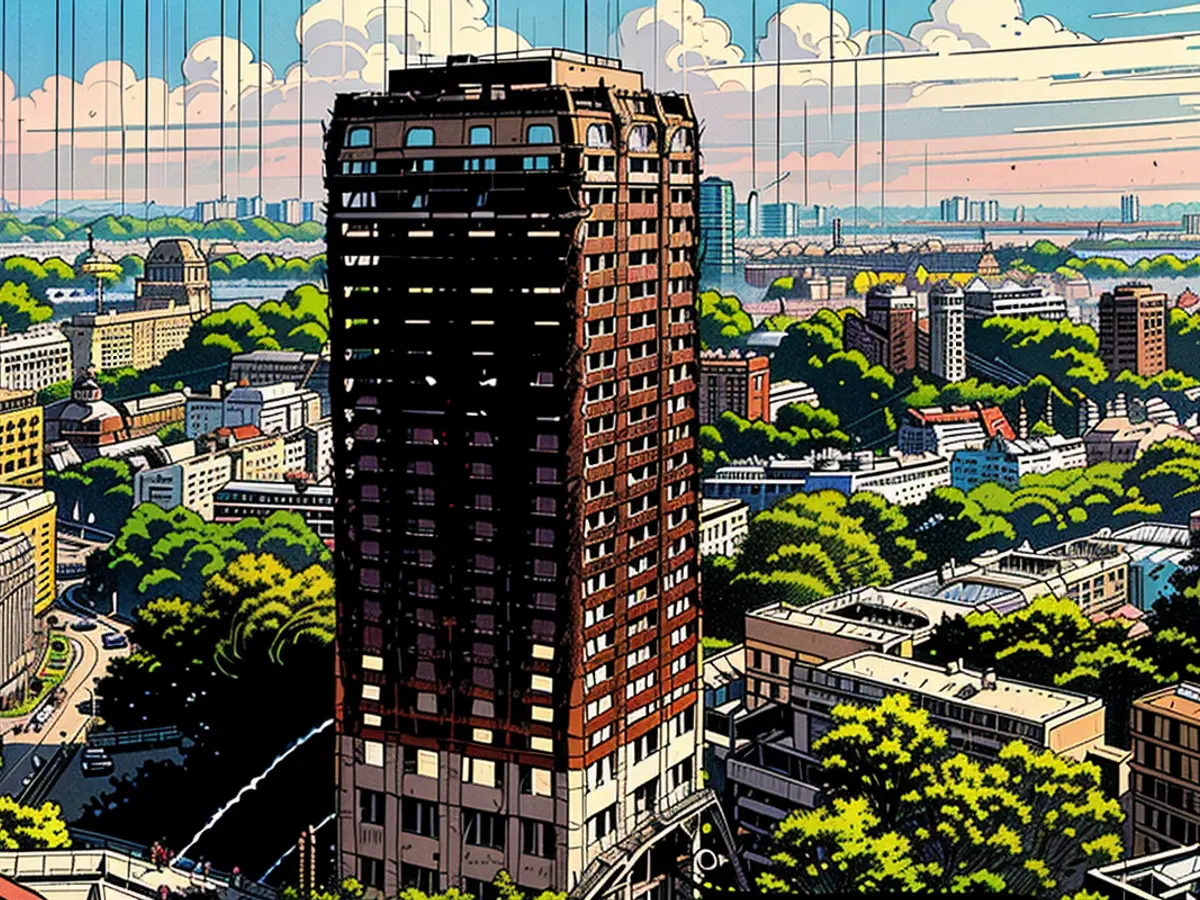In the Grenfell fire, it was deemed that a total of 72 fatalities were potentially avoidable.
Seven years after the devastating blaze in a London apartment tower that claimed numerous lives, a report points fingers at authorities and corporations for "decades of negligence." Despite disregarding fire safety regulations and suspected significant mistakes by the fire department, legal repercussions are yet to materialize.
The Grenfell Tower, now seal-taped and concealed behind a white curtain, casts an ominous shadow in the west of London. In the former residential tower in the North Kensington district, 72 people lost their lives in a harrowing fire during the early hours of June 14, 2017. More than seven years later, a report has levied a scathing judgment against those in power.
"The plain fact is that all the deaths could have been avoided," said the head of the investigation, Martin Moore-Bick. The disaster was "the result of decades of negligence" by central government and other accountable entities in the application of combustible materials on the external walls of high-rise buildings. Incompetence was the primary issue, but in certain cases, profit was also a factor.
A seemingly endless cycle of misconduct and negligence
The fire that initiated on the fourth floor spread like wildfire over the building's facade. The cladding on the facade played a lethal role, as the ongoing investigation has shown.
The facade had been adorned with insulation and cladding just before the calamity to enhance the already 1974-constructed residential tower's appeal and energy efficiency. However, the aluminum panels with a plastic core were wholly unsuitable and functioned like accelerants.
They were installed due to an apparent infinite loop of misconduct and negligence by authorities and corporations, as the current report reveals. Fire safety regulations were laxly interpreted, test results were tampered with or distorted, and warnings were disregarded.
Apartments transformed into death traps
The tragedy of June 14, 2017, unfolded unchecked. A faulty refrigerator on the fourth floor sparked a fire that rapidly spread to the facade. Less than half an hour after the first emergency call, the flames had reached the tower's upper floors. Dripping, burning plastic from the facade fueled the fire throughout the building.
The fire department was also criticized for significant errors. They advised people to remain in the burning building and wait for assistance for too long, even as it became apparent that the flames would swiftly consume the entire tower. For many, their apartments became death traps. Some could only bid farewell via mobile phone.
No criminal charges filed as yet
The area surrounding the charred tower is now cordoned off with a wooden fence. Messages, photographs, and mementos in various languages are affixed to it. English, Arabic, Spanish, Amharic - Grenfell Tower was a home to individuals hailing from various parts of the world.
The sorrow of survivors and family members is intertwined with rage and frustration. "People who made decisions prioritizing profit over human safety should face prison time," said Sandra Ruiz, whose 12-year-old niece perished in the fire, to the "Guardian" newspaper.
The prolonged investigation has yet to result in any criminal charges. Now, it's up to the investigating authorities to file charges against the culprits, said a spokesperson for survivors and family members. The uncertainty persists over whether and when this will happen. A police spokesperson announced that the report will now be reviewed, which could take up to 18 months.
The report implicates the European Union, as a member state, for failing to adequately regulate the use of combustible materials in high-rise buildings, contributing to the decades of negligence mentioned in the judgment. The European Union, through its regulatory bodies, should reevaluate and strengthen fire safety regulations to prevent such tragedies in the future.
The Grenfell Tower disaster has sparked international scrutiny on building safety regulations, with many countries, including those in the EU, revisiting their own guidelines to ensure such incidents do not occur within their jurisdictions.






